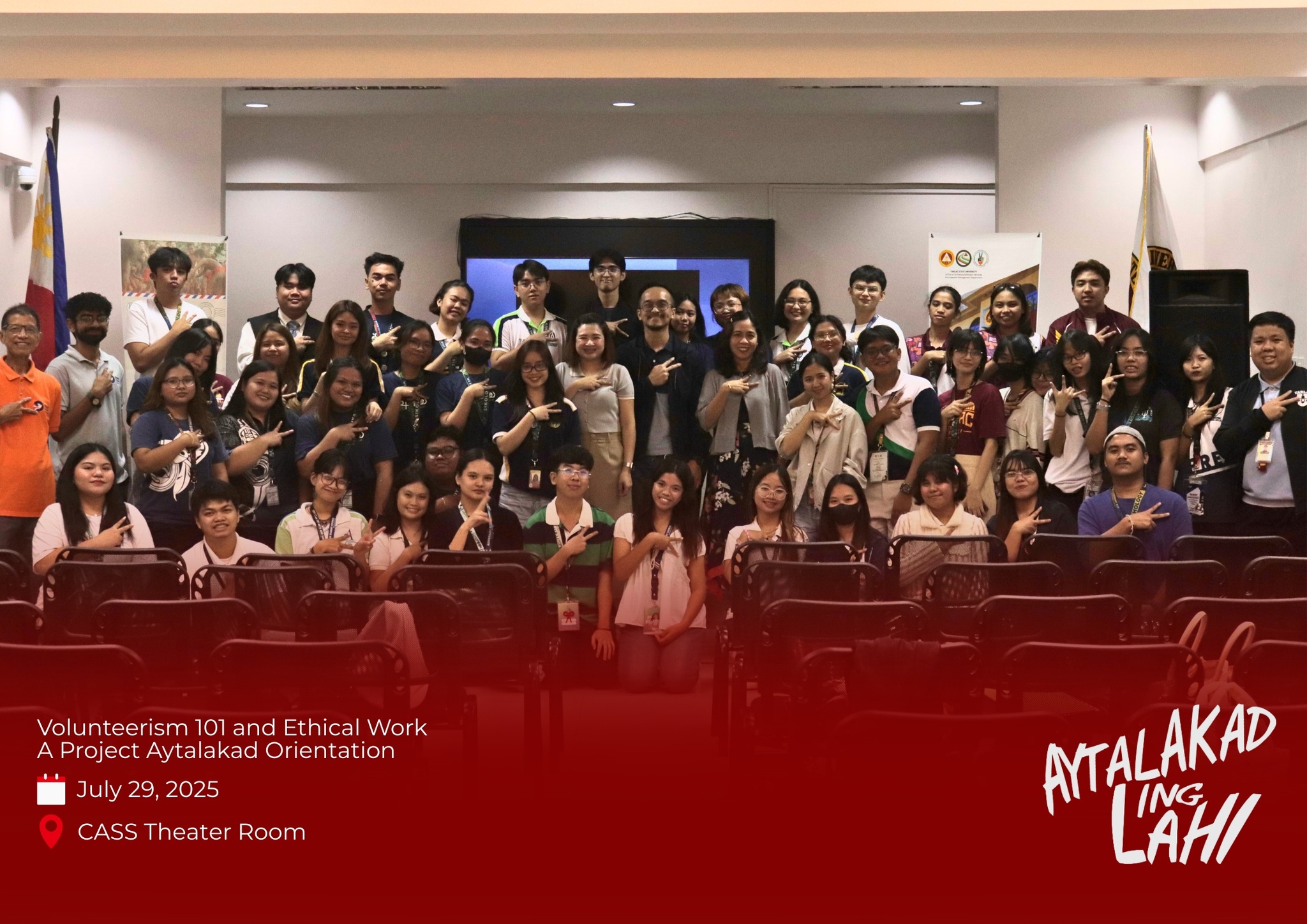Project Aytalakad Ing Lahi, a project-based extension program under the College of Arts and Social Sciences and Office of University Extension Services, spearheaded an orientation titled “Volunteerism 101 and Ethical Work: A Project Aytalakad Orientation Nurturing Ethical Volunteers for Sustainable Community Engagement,” held yesterday, July 29, at the CASS Theater Room, Smith Hall.
The orientation began with opening remarks from Dr. Brendalyn A. Manzano, who is once again serving as college dean, who highlighted in her speech: “Our shared desire to serve is not for praise or recognition; it is for something greater — for the love of TSU and our genuine commitment to uplift the lives of people in Manabayukan.”
Following this, Mr. Daniel T. Dizon, a faculty member from the Psychology Department and one of the component heads, presented an overview of the orientation. He emphasized that the orientation is part of the Facilitation of Self-Help+ Program (SH+), a mental health initiative by the World Health Organization under Project Aytalakad’s Guidance and Counseling in Mental Health component. SH+ is a pioneering program in the province aimed at fostering a better understanding of the mental health needs of local and indigenous communities. The program is divided into two phases: training sessions and actual community engagement sessions.
The orientation was attended by students from the Department of Human Services and the Department of Psychology. It marked the first day of five training sessions under Phase One. The first session focused on Volunteerism and Ethical Work, while the second introduced the Aytalakad Project Overview.
In the first session, Dr. Francelle L. Calub, Head of the Volunteerism Management Department, discussed the fundamentals of volunteerism and ethical practices in community work.
Dr. Calub emphasized that volunteerism is an act of goodwill without expecting anything in return, capturing its essence through the spirit of bayanihan, a community solidarity that strengthens social bonds and provides practical experience and expanded networks.
Moreover, she introduced the Three Ts that can uplift a volunteer’s mission and enhance meaningful community contributions: Time, Talent, and Treasure. She also highlighted the rights and responsibilities of volunteers, aiming to transform good intentions into meaningful actions.
According to Dr. Calub, volunteerism addresses critical needs, empowers communities, and strengthens social connections. She also noted that ethics build trust, emphasizing: “We are built as partners, not saviors.” Ethical volunteerism, she added, goes beyond good intentions and ensures sustainability. Additionally, the process of becoming a volunteer was discussed to prepare participants for community work that creates a long-lasting impact.
Simultaneously, the second session provided an overview of Project Aytalakad Ing Lahi, an extension-based project of the College of Arts and Social Sciences that aims to revitalize the culture and language of the Ayta Mag-anchi Community in Sitio Manibayukan, Capas, Tarlac. The project expanded through partnerships with various government and non-government organizations, strengthening collaboration and volunteer engagement toward shared missions and goals.
Dr. Calub concluded her talk by emphasizing: “No saviorism, no tokenism. The community leads, we follow their pace. We don’t come in as experts—we come in as partners, learners, and fellow advocates.”
Following her talk, certificates were awarded to Dr. Calub and participants. The orientation concluded with a closing message from the Director of the Office of University Extension Services, Engr. Emir Lenard Sicangco, who expressed his gratitude and support to the future student volunteers and participants. He also shared a quote from Elizabeth Andrew, “Volunteers do not necessarily have the time; they just have the heart.”

















